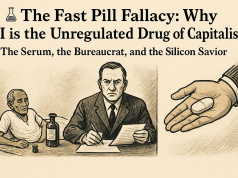In a world saturated with advertisements and corporate messaging, the story a company tells is not just a medium to sell products or services – it is a powerful tool that shapes its public persona and influences consumer perception. At The Work Times, we believe that the intersection of branding and ethics warrants a closer look, especially in an age where consumers are increasingly values-driven and discerning.
The narrative a brand crafts can function as either a bridge or a barrier in its relationship with customers. It’s the brand’s way of saying who they are, what they stand for, and why they matter. This is where ethical storytelling comes into play. It’s about aligning a brand’s messaging with its core values and ensuring that the promises made through marketing efforts are not just hollow words but are backed by real, ethical commitments.
But what happens when a brand’s narrative diverges from reality? The moral implications of such branding strategies are significant. Misleading branding can damage consumer trust, tarnish reputation, and even lead to public backlash. Brands that have been caught ‘greenwashing’, for instance, or exaggerating their commitment to social issues, have faced considerable criticism. It underscores the importance of truth versus curated realities in branding.
Consumers, on their part, have the challenging task of navigating this fine line. They must learn to differentiate between genuine corporate values and marketing ploys designed to capitalize on ethical trends. This calls for vigilance and a critical approach to consuming brand narratives.
Amid these challenges, there are beacons of hope. We reflect on case studies of companies that have rebranded themselves through the lens of ethical storytelling, without sacrificing their identity or market position. These examples are not just stories of success, but also serve as guiding principles for other businesses looking to embark on a similar path. They show how a commitment to truthful storytelling can enhance workplace culture, build consumer trust, and contribute positively to society at large.
As we analyze these cases, we offer insights into how ethical storytelling goes beyond marketing and permeates every aspect of business operations. A company that stays true to its ethos is one that integrates its values into its everyday practices, leading to a more satisfied workforce, a loyal customer base, and a lasting positive impact on the world.
Rebranding, therefore, is not just an exercise in aesthetics or messaging but an ongoing process of aligning a company’s narrative with its true identity and ethical stance. In doing so, brands do not just communicate; they connect on a deeper level with their audience. For companies looking to embark on this journey, The Work Times stands as a testament to the power of ethical storytelling and a source of insight and inspiration for all who value integrity in the world of work.




























